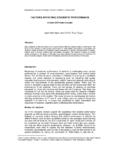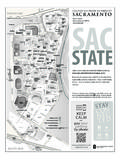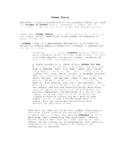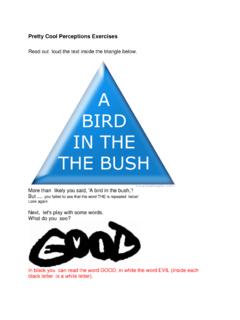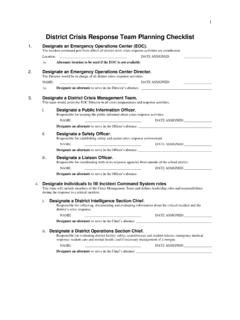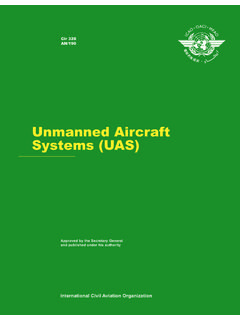Transcription of Topic: The Impact of Globalization on African Culture
1 Topic: The Impact of Globalization on African Culture . by Yeboah Kwame University of Southern Denmark, Odense: Brief Abstract: Globalization has generated a lot of controversy with regard to the rise of a global Culture . Western norms and practices are gradually being transported across the globe as the acceptable way of behaviour. In view of this, the rich and dynamic African Culture has been diluted. This paper is therefore designed to outline and critically assess the influence of Globalization on African Culture . Since its conception and birth, Africa has been a cultural cornucopia-a rich harvest of indigenous traditions and Culture that have attracted several people around the world to witness the manifestation and largess of such practices. It must be said that the observance of tradition and Culture and exploitation of their artefacts, many of which come in the form of statements, beliefs, legends, and customs from generation to generation have been the very definition of the African .
2 Introduction Many scholars, opinion leaders and political analysts etc. have expressed divergent and dissenting views regarding the effects of Globalization on individuals, nations and the world at large. I have decided to focus my search on Africa to identify how Globalization has impacted on Africans and perhaps pin-point the necessary actions that need to be taken to ensure maximum benefits for Africa in this era of Globalization . It is worth noting that, the Impact of Globalization on Africa has been diverse. A look at the various interpretations of the term Globalization reveals interaction and subsequent integration of the peoples and nations into a common system. If the central idea of Globalization is interaction and integration, then Globalization as a concept is not new to Africa and the world in general. Africa s interaction with the rest of the world dates back to the 15th century. The initial contact was through trade including the trans-Atlantic slave trade, and then during the period of colonialism whereby Europeans assumed political and economic control over most parts of Africa and through the era of post colonialism or independence to this present age.
3 If we agree that any form of interaction result in a certain level of influence and hence consequences either good or bad, then it can be said that Africa s interactions and integration into the global system at any given period has played a role in what Africa is today. The consequences are both negative and positive. On a balance of probability, there is the temptation to conclude that the consequences of Globalization on Africa have rather been negative. What is Globalization ? In defining and explaining Globalization , Nsibambi (2001), incorporated five concepts. He defined Globalization as a process of advancement and increase in interaction among the worlds Countries and peoples facilitated by progressive technological changes in locomotion, Communication, political and military power, knowledge and skills, as well as interfacing of Cultural values, systems and practices . He noted that Globalization is not a value-free, innocent, self-determining process.
4 It is an international socio-politico-economic and cultural permeation process facilitated by policies of governments, private corporations, international agencies and Civil society organizations. It essentially seeks to enhance and deploy economic, political, technological, ideological and military power and influence for competitive domination in the world. In this report, Globalization is defined as a process of linking the regions and/or nations of the world which is facilitated by information flow (communication) inducing changes in the pre-existing socio-cultural, political, economic etc., structure and systems of nations and peoples . The adoption of this definition is in line with the aim of this report to examine the Impact of Globalization on Africa s Culture . Globalization and Africa Globalization as a concept is not new to the world. Scholars believe there has been three major phases of Globalization : 1870 -1914.
5 1945-1980 and from 1980 till now (Ajayi, 2003). This however, depends on how one defines and explains Globalization . With regard to Africa, international contacts and exchanges are not new. Africa s history is marked by foreign European involvement. Africa had been in contact with other parts of the world and also had significant interactions within it. Interaction with the outside world particularly Europe and America started way back in the 15th century. This has significantly altered the course of Africa history-culturally, politically, economically etc. Africa s contact with the rest of the world started through trade, including the trans-Atlantic slave trade. This was the period when western merchants bought from African slave traders Africa s most valuable resources (able-bodied men, women and children). The second was the era of colonialism, when Europeans at a conference in Berlin in 1884 divided up Africa among themselves and instituted direct control and rule over African countries.
6 This division was done without regard to ethnic, cultural, linguistic and other considerations. The next stage of Africa interaction with the world particularly Europe was during the era of independence from colonial rule. The features of pre- colonial and post- colonial era will be discussed at other section of the report. Beginning the last decade of the 20th century into the 21st century, Africa s linkage with other parts of the world has entered a new phase commonly termed as Globalization . Though the term Globalization may be new, the substance and ideals are not new to Africa and the world as a whole. Africa, a brief introduction Africa is one of five of the world s continent. It is the second largest continent in the world both in area and population. It has an area of 11,699 square miles, more than three times the size of USA. In 1990, Africa had a population of 642 million representing 12% of the world s population.
7 Africa is made up of over fifty nations with an estimated one thousand different languages spoken and as many distinct ethnic group. Africa is perhaps the most linguistically and ethnically diverse of the entire world s continent. Africa is endowed with immense natural and human resources, as well as great cultural, ecological and economic diversity. In terms of natural resources, Africa is the world s richest continent. It has 50% of world s gold, most of the world s diamonds and chromium, 90% of the cobalt, 40% of world s potential hydro-electric power, 65% of the manganese, millions of acres of untilled farmland and other natural resources (Walter Williams, 1997). In spite of these impressive facts on Africa, for much of history and even in contemporary times most non-Africans have referred to it as the Dark continent . In the past this reference was a reflection of the ignorance of the people of the west of Africa s immense potential.
8 However in recent years, reference to Africa as the Dark Continent is mainly due to the over emphasis of negative reportage on Africa by the western media. The headline news on Africa has focused on decay in African states, endemic corruption at all levels of government, chronic human rights abuse, hanger, famine, poverty, civil wars and recently HIV-Aids. These stories, of course, are not mere fabrication. African countries confront very real and severe challenges. For instance, Sub-Saharan Africa home to about a tenth of the world s population is the location of half of the world s civil wars, refugees and most of its famine. What the western media has failed to notice and to include in their reportage is that, in spite of the political, social and economic challenges confronting Africa, Africa is not in the throes of total disintegration and decay. Reports on African issues are most often ahistorical with no attempt to provide a historical context of antecedents of the issue.
9 Many believe that most of the political and economic issues of contemporary Africa have deep seated roots in the colonial and post colonial experience effects of the cold war and Globalization . The capacity and reach of the African states, the absence of democratic structures and practice, the ethnic, civil and religious conflicts that have plagued post colonial Africa is a reflection of the legacy of colonialism. Globalization and African Culture This segment of the paper is designed to outline and critically assess the influence of Globalization on African Culture in general. The most popular and controversial debates about Globalization has to do with the rise of global Culture (Guillen, 2001). Actually, there are only a few scholars who accept that a global Culture is in the making. A Culture ideology of consumerism -driven by symbols, images, and anaesthetic of the lifestyles and self-image-has spread throughout the world and is having some momentous effects including standardization of tastes and desires, (Guillen, 2001, Leslie Sklair, 1991).
10 Also, anthropologist Arjun Apadrai (1996) argues that individuals and groups seek to annex the global into their own practices of the modern , and that consumption of the mass media worldwide provoke resistance, irony selectivity, and in general agency. National cultures and values change over time, though in path dependent rather than convergent ways (Inglehart and Baker 2000).Other writers such as Meyer and Hannan (1979) do describe world- Culture as binding society and individuals together by rationalizing systems of (imperfect) egalitarian justice and participatory representation, in the economy, polity, Culture , and social interaction. According to Yashar (1999) it is obvious that no aspect of Globalization -economic, social or normative- can account for the rise of ethnic-base activism since the 1960 s. Rather, globalisation changes the characteristics of the state structures that activist face when making their claims.
